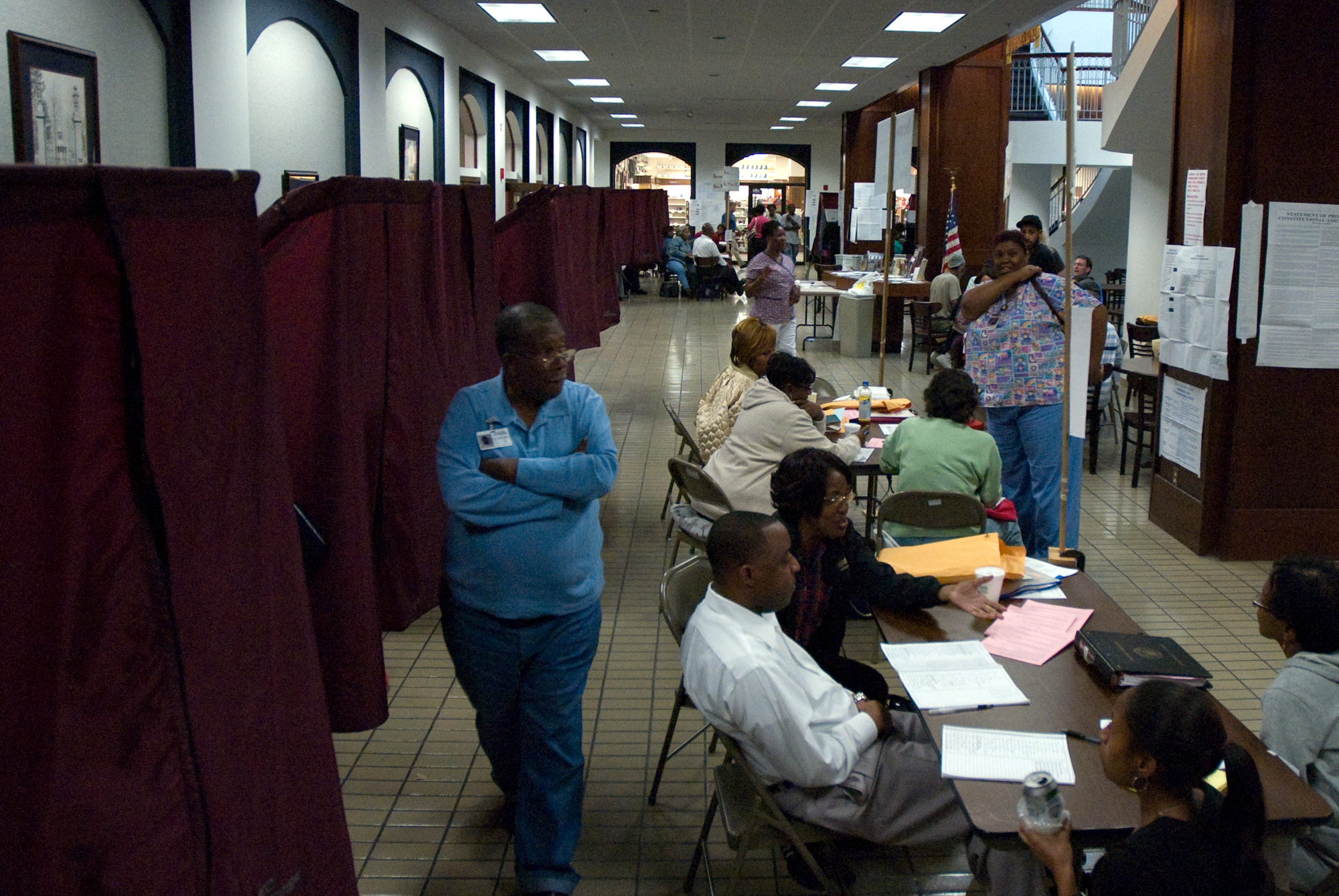
NEW ORLEANS (BP)–New Orleans Baptist Theological Seminary served as a polling place in the presidential election Nov. 4 as numerous voting precincts cast their ballots in the Hardin Student Center, allowing students and faculty to interact with the community from both a personal and civic standpoint.
“Historically, New Orleans has conducted its elections in small precincts with one or two voting machines per precinct,” Chuck Kelley, the seminary’s president, said. “Nearly all of these were located in homes in the many neighborhoods of New Orleans.
“When much of the Ninth Ward and New Orleans East was heavily damaged or destroyed by Hurricane Katrina, however, large portions of the city were left without homes or other habitable properties [to host elections].”
Local officials decided that the student center, which boasts a large atrium, was a great fit for the surrounding area’s voting needs. Since Katrina, voting machines have been moved in on the eve of each election.
“We were happy to provide space for the numerous polling precincts that had no adequate facility available,” Kelley said. “With easy access, a large open space, a big parking lot, bathrooms and other basic services, we had a perfect place for voting. We’re delighted to provide it.”
Faculty, staff and students serve as hosts on election days. Parking priority is given to voters, and additional campus police officers provide direction to campus guests. Campus Police Chief Chester Douglas praised the seminary family for their flexibility.
“Anytime we have an opportunity to interact with the public is a chance to display some Christian courtesy and to be a witness,” Douglas said.
While voting machines may appear odd on a seminary campus, Kelley pointed to the school’s role in the surrounding community.
“Serving as a polling place is part of our community service,” he said. “New Orleans is not just our location. It is our home, and we want to play an active role in its recovery. We also want to keep a visible reminder before our seminary family that being a good citizen through participation in our civic processes is an important opportunity and responsibility for Baptists in a democracy.”
A BIBLICAL MANDATE
Also on Election Day, Barrett Duke, vice president for public policy for the Southern Baptist Ethics & Religious Liberty Commission, delivered a message in chapel, noting that much is made of keeping religious duties separate from civic ones. Duke, however, underscored the biblical mandate for civic involvement.
“God’s people are needed in the voting booth fulfilling their civic responsibility,” he said.
With 1 Peter 2 as his text, Duke named four challenges set forth for believers.
“The first challenge is a personal challenge,” Duke said. “The first challenge we have as God’s disciples is a personal challenge for us to be the kind of people we want others to be.”
That personal challenge, he said, is inevitably connected to a public challenge.
“What we do in private has a public effect,” he said, referring to 1 Peter 2:12. “We need to live lives that actually indicate that Christianity means something. It’s more than simply a label we wear.”
Then, there is a civic challenge found in 1 Peter 2:13. Part of the governing authority in the United States, Duke explained, is the expectation that all citizens of proper age participate in the voting process.
“You can’t not vote and claim you’re exercising all the responsibilities of Christian discipleship,” he said. “Either we’re doing it and we’re obeying God, or we’re not doing it and we’re disobeying God.”
Duke also noted an intellectual or apologetic challenge found in 1 Peter 2:15. By participating fully in the election process, Christians have a direct impact on the direction of the country, he said.
–30–
Michael McCormack is a writer for New Orleans Baptist Theological Seminary.














